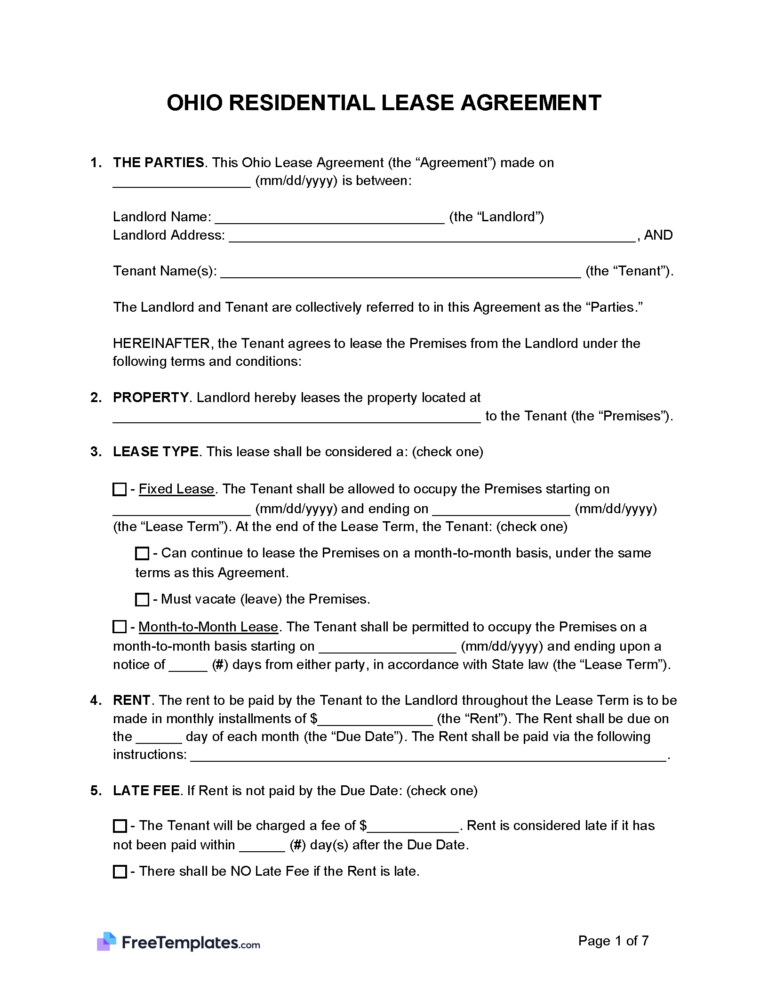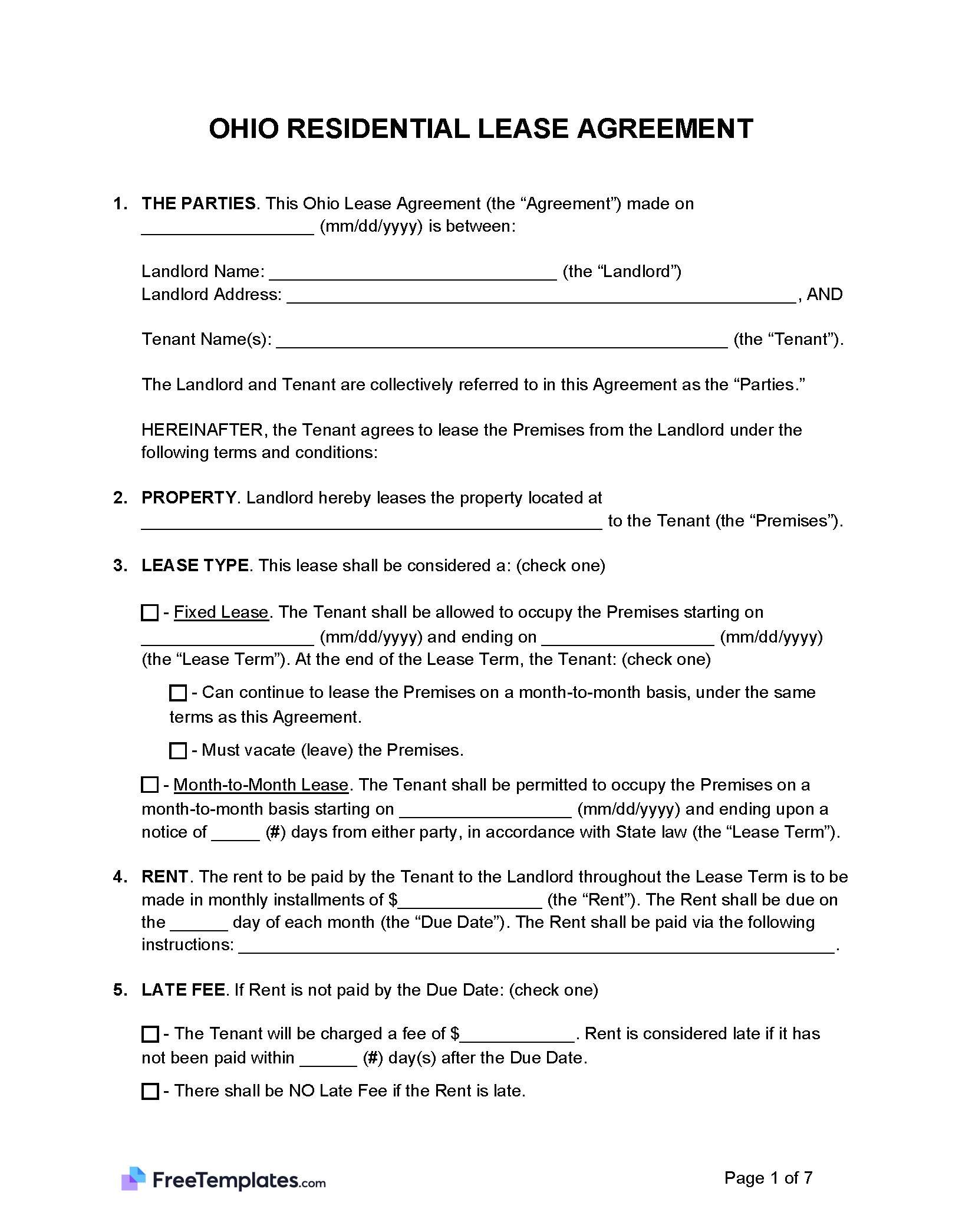By Type (6)
| Standard Lease Agreement – This is the most common lease in which a tenant rents a property from a landlord for a set time period, usually 12 months. |
| Commercial Lease Agreement – An agreement between a business and a landlord to exchange money for a retail, office, or industrial building. |
| Month-to-Month Lease Agreement – A lease that can be terminated by either party with a 30-day notice that renews at the end of each month. |
| Rent-to-Own Agreement – When a tenant can purchase their rented space upon completing their lease. |
| Roommate Agreement – This is for when two co-habiting tenants share a property and want to outline the duties and responsibilities of their lease. |
| Sublease Agreement – When a renter leases their rented space to another individual for a sum of money and with permission of the landlord. |
Disclosures (2)
Lead-Based Paint Disclosure – For any property built before 1978, the landlord is responsible for notifying the tenant that toxic lead paint may be on the premises. (EPA/HUD Fact Sheet)
Landlord’s Contact Details – The landlord or property manager’s name and address must be listed on the lease agreement. (§ 5321.18)
Security Deposit
Maximum Amount – In Ohio, there is no maximum security deposit amount that a tenant may be charged.
Returning to Tenant – Tenants must receive their security deposit back within 30 days of the lease end date. (§ 5321.16(B))
Interest – For any lease lasting longer than 6 months and a security deposit of $50 or 1 month’s rent, whichever is greater, the landlord is responsible for paying the tenant interest at 5%. (§ 5321.16(A))
Itemized List – The tenant must be given a list of any deductions to the security deposit for damages to the rental unit within 30 days of the lease’s end. (§ 5321.16(B))
Separate Bank Account – No laws list whether the security deposit funds need to be in a separate bank account in Ohio.
Landlord Access
General Access – The landlord must give a 24-hour notice if they plan on accessing their rental unit. (§ 5321.04(8))
Emergency Access – In an emergency situation, the landlord has the right to enter the rented property without notice. (§ 5321.04(8))
Paying Rent
Grace Period – Ohio has no specific grace period for late rent payments. The original agreement should outline the grace period that both parties have agreed to.
Maximum Late Fee – In Ohio, there is no maximum late fee that a tenant may be charged.
Returned Checks (NSF) – If the tenant writes a bad check, the landlord may charge a $30 fee or 10% of the check’s amount, whichever is greater. (§ 1319.16(A))
Withholding Rent – If a tenant’s property conditions are not livable or safe, they may notify the landlord and request that all issues be fixed within 30 days. If the unit has not been repaired within that time, the tenant may remedy the problem and request that it be deducted from their rent due. (§ 5321.07)
Reasons for Eviction (3)
Non-Payment of Rent – If a tenant does not pay rent on time, they may be served a notice to quit or pay. (§ 1923.04(A))
Non-Compliance – If tenants do not comply with the lease agreement, they may be served a 3-day notice to quit or comply. (§ 1923.02(8-9), § 1923.04(A)) For a health or safety violation, a tenant may be served a 30-day notice to quit or comply. (§ 5321.11)
Lockouts – Landlords are prohibited from locking a tenant out of their unit for any reason other than with an official court order. (§ 5321.15)
Leaving Before the End Date – If a tenant abandons the property, they will still be held accountable for the rent due until the end of the lease date. The landlord is required to make an effort to lease the vacant space. (Important Facts About Ohio Landlord-Tenant Law (p.2))

